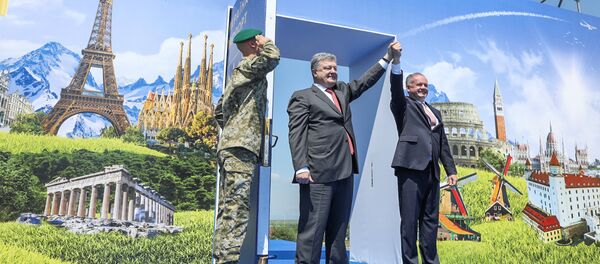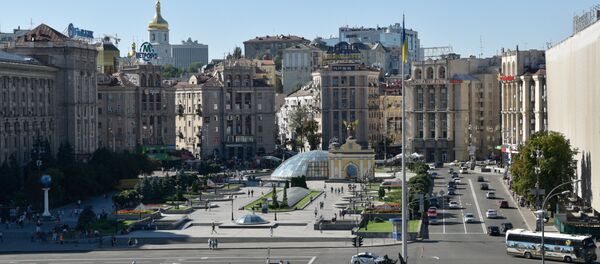According to the 58-year-old Kiev teacher Olga Stetsenko, she, like many other Ukrainians,
immediately decided to "go to the passport office" when Petro Poroshenko announced the abolition of visas.
After waiting several hours in a queue, she applied for a new biometric passport and a month later the document was ready. However, whether Olga will actually be able to travel to the EU, remains highly questionable.
Olga paid for her passport one thousand hryvnia (31 euros) — a quarter of the average official salary of teachers in Ukraine. She is glad that she received the document, but her salary is too low to easily travel to the EU.
"I'm happy, and happy that this stage is over. Now I can travel all over Europe — well, theoretically," she said.
"But what about practice? In practice, most Ukrainians can't afford a long journey, especially to expensive Western European countries," Die Presse wrote.
For the Kiev authorities, which have been rapidly losing their popularity, a visa-free regime proved to be one of the few successful initiatives. However, many Ukrainians do not seem to be able to make any use of it.
For the 29-year-old Nicholai from Pokrovsk a trip to the West remains a distant dream. The young father has to pay bills for electricity, water and gas according to tariffs raised at the request of international lenders.
"It's not about traveling, but about survival," Nikolai told the newspaper.
Short-term visa-free travel to Europe's Schengen Area was granted to Ukrainians on Sunday. In accordance with the agreement, they are now able to travel to countries inside the Schengen Area for 90 days out of every 180 for tourism, business or family purposes, although they have no right to work or study in the EU member states.




